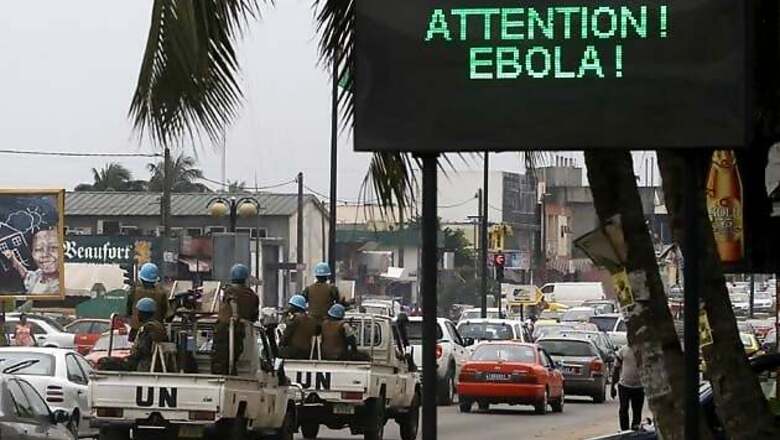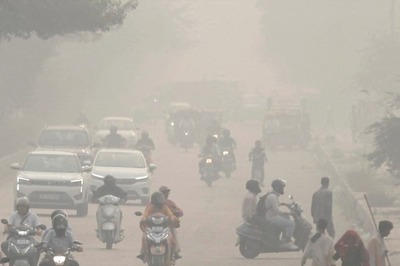
views
Geneva: The World Health Organisation (WHO) said on Friday that it expected to begin small-scale use of two experimental Ebola vaccines in West Africa early next year and in the meantime transfusions of survivors' blood may offer the best hope of treatment.
WHO is working with pharmaceutical companies and regulators to accelerate the use of a range of potential treatments to fight the disease, a senior WHO official said. Ebola has no cure and has killed at least 3,091 out of 6,574 people infected in West Africa since an outbreak began in March.
GlaxoSmithKline has begun clinical trials of its vaccine in the United States and Britain, to be followed by a trial starting in Mali next week, while NewLink vaccine trials are about to start in the United States and Germany, said Dr. Marie-Paule Kieny, WHO assistant director-general.
"If everything goes well again we might be able to start to use some of these vaccines in affected countries at the very beginning of next year, in January. This will not be a mass vaccination campaign, let's be clear about that because the quantity which will be available doesn't make this possible," Kieny told a news briefing in Geneva.
She stressed however that the shots were experimental and had not yet been shown to work against Ebola: "They have given very promising results in monkeys, but monkeys are not humans.
"We could still face a situation where these vaccines would be unsafe in humans or where they would do nothing in terms of protection. So we need to be very prudent."
Data will be collected from clinical trials when the experimental vaccines are being given to healthy volunteers who are then monitored for adverse side effects and to see if the shot elicits an immune response in their blood.
Regulators at the European Medicines Agency (EMA) said on Friday they would begin reviewing data on experimental Ebola medicines to support any decisions made on whether to use them for treating patients.
Canada has given 800 vials of the NewLink candidate vaccine to WHO, expected to yield at least 1,500 doses, Kieny said. The U.S.-based firm is "working very hard to produce a few more thousand doses in the coming months", she added.
GSK has said it hopes to have 10,000 doses of its experimental vaccine by the end of this year. Kieny said an experimental Ebola vaccine being developed by Johnson & Johnson but not yet ready for trials in humans was also under consideration.
ZMAPP DOSES BY YEAR-END
Experimental Ebola drugs including compounds from Mapp Biopharmaceutical, Sarepta and Tekmira will be tested in affected states for the first time in a bid to fast-track trials, the Wellcome Trust said on Tuesday.
WHO is taking part in that effort, Kieny said. "We are starting to discuss with African sites to see which would be the most suitable to test these new drugs and establish as soon as possible which one gives an advantage for survival to patients."
ZMapp has been used to treat several Ebola patients who have since recovered, but doctors cannot say for sure whether the drug helped them or whether they would have recovered anyway.
"In terms of ZMapp the best, as we have known for a few weeks now, is that maybe a few hundred doses will be available by the end of the year. But clearly this is not the kind of scale that can have impact on the epidemic curve," Kieny said of the drug by the California-based private biotech firm.
The use of blood transfusion and infusion of human serum from Ebola survivors is recognised as a "safe treatment", but donated blood must be screened for infections including HIV and hepatitis, she said.
There was only anecdotal information on its use in Ebola-infected healthcare workers, as there is no system in place. "Will it be efficacious? For the time being we don't know because there are not enough people who have been treated," Kieny said, adding that they could be counted on two hands.
"This is something where the African population doesn't have to wait for anybody else to develop it for them. This is why there is a lot of enthusiasm," Kieny said.

















Comments
0 comment